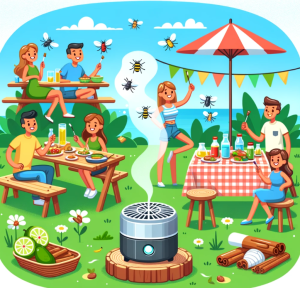
Drink More, Think Clearer: What Science Says About Water Intake and Your Health
You’ve probably heard it a thousand times: drink more water. But is it really the miracle health hack it’s often made out to be?
A bunch of people on Reddit seem to think so.

But also, as a systematic review of 18 randomized clinical trials sheds light on this everyday question. Spoiler alert: water might not be a miracle cure, but it does hold surprising benefits for weight loss, kidney health, and possibly even migraines and diabetes.
Let’s dive into what the science says—and what it doesn’t—about staying hydrated and why a few extra glasses a day might be worth your effort.
What the Research Found: Sips That Save
This systematic review analyzed studies that specifically looked at how changes in water intake impacted health. Participants ranged from young women prone to urinary tract infections (UTIs) to adults trying to lose weight. Here are the highlights:
- Weight Loss: Drinking more water (about 1.5 liters daily before meals) helped some participants lose up to 100% more weight than control groups. Why? Water may fill you up before meals, leading to fewer calories consumed. However, one study involving adolescents found no significant impact on weight, possibly due to poor adherence or differing needs among younger populations.
- Kidney Health: Two studies reported fewer kidney stones among participants who drank enough water to increase their urine output to at least 2 liters per day. For individuals prone to nephrolithiasis (kidney stones), this simple intervention cut stone recurrence rates in half over five years.
- Migraine Prevention: The data on headaches is mixed but intriguing. Adults who drank more water reported slight improvements in headache-related quality of life, though not all results reached statistical significance.
- Urinary Tract Infections: Women with recurrent UTIs who drank an extra 1.5 liters of water daily experienced fewer infections and longer intervals between episodes.
- Blood Sugar Control: In one study, people with type 2 diabetes who drank 1 liter of water before meals saw significant reductions in fasting blood glucose levels, hinting at a potential low-cost, low-risk way to help manage diabetes.
Why Does Water Work?
Water isn’t just about quenching thirst; it’s a fundamental component of nearly every physiological process in your body. Here’s how hydration can help in specific ways:
- Weight Loss: Water may act as a natural appetite suppressant by filling your stomach, making you feel full faster. It also replaces high-calorie drinks like soda, slashing overall calorie intake.
- Kidney Health: Staying hydrated dilutes urine, reducing the risk of crystal formation that leads to kidney stones.
- Migraine Relief: Dehydration is a common headache trigger. More water may prevent or ease symptoms, though the evidence here needs more robust trials.
- UTI Prevention: High water intake flushes bacteria from the urinary tract, lowering the chance of infections.
- Blood Sugar Regulation: For people with elevated blood glucose, increased hydration may dilute blood sugar levels, although the exact mechanism needs further exploration.
The Fine Print: What Science Still Doesn’t Know
While the findings are promising, the review also highlighted gaps in our understanding:
- Mixed Results: Not every study showed benefits, and some results were conflicting. For instance, while adults with diabetes saw improvements in blood sugar control, other groups didn’t.
- Small Sample Sizes: Many studies included fewer than 50 participants, making it difficult to generalize findings to broader populations.
- Short Durations: Interventions ranged from just a few days to five years, but long-term outcomes remain unclear.
- Adherence Issues: Getting people to drink more water consistently is surprisingly challenging, particularly in adolescents or groups without easy access to clean water.
What’s Next for Water Research?
Given water’s affordability and lack of side effects, it’s an ideal candidate for further study. Future research could explore:
- Optimal Intake Levels: How much water is truly beneficial for different populations, activity levels, and health conditions?
- Behavioral Interventions: What strategies help people consistently drink more water?
- Long-Term Effects: Beyond short-term benefits, what are the lifelong impacts of improved hydration?
How to Make Hydration Work for You
Incorporating more water into your daily routine doesn’t have to feel like a chore. Here are some practical tips:
- Pre-Meal Hydration: Try drinking a glass of water before meals to curb your appetite.
- Keep It Accessible: Carry a reusable water bottle so hydration is always within reach.
- Flavor It Up: Add a slice of lemon, cucumber, or mint to make water more appealing.
- Set Reminders: Use apps or alarms to nudge yourself toward your hydration goals.
For individuals prone to kidney stones, UTIs, or migraines—or those managing diabetes—these small changes could have outsized benefits.
Join the Conversation
What’s your experience with staying hydrated? Do you notice a difference in your health when you drink more water? Let us know in the comments or share your tips and tricks on social media.
- How much water do you typically drink daily? Do you think it’s enough?
- Have you tried increasing your water intake for specific health benefits? If so, what happened?
- What challenges do you face in staying hydrated, and how do you overcome them?
Final Thoughts: Water as the Unsung Hero
The evidence may not be conclusive across all areas, but it’s clear that water deserves more credit in the public health conversation. From aiding weight loss to preventing kidney stones, hydration is an easy, low-cost habit with potentially life-changing effects. It might not cure all ills, but a glass of water could be the first step toward better health.
So, the next time you’re deciding between soda and water, remember: the science is on water’s side. Drink up, and let’s raise a glass—to health!
Be Part of the Change – Get Weekly Updates!
Stay informed and connected. Subscribe for free and share this blog to make a difference in public health with others. If you liked this blog, please share it! Your referrals help This Week in Public Health reach new readers.



